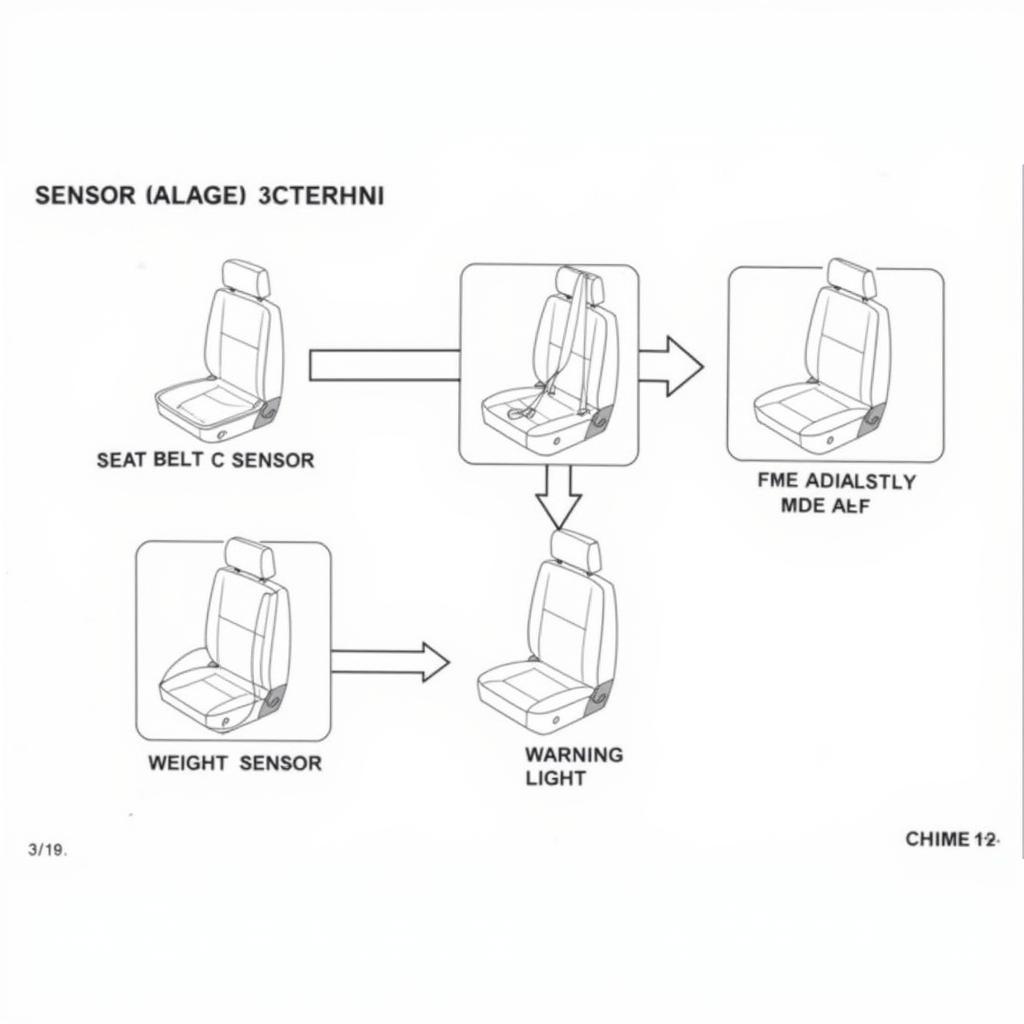If you’re driving your 2001 Audi TT and the brake warning light suddenly illuminates, it’s crucial not to ignore it. This light serves as a critical safety indicator, signaling a potential issue within your braking system. While it could be something as simple as a low brake fluid level, it could also point to a more serious problem requiring immediate attention.
This comprehensive guide will delve into the common causes of a brake warning light on a 2001 Audi TT and provide potential solutions to help you get back on the road safely.
Common Causes of a 2001 Audi TT Brake Warning Light
Understanding the potential triggers behind your Audi TT’s illuminated brake warning light is the first step towards resolution. Here are some of the most prevalent culprits:
-
Low Brake Fluid: The most common reason for the brake warning light is a low brake fluid level. This usually indicates a leak in the braking system, which needs immediate attention.
-
Worn Brake Pads: Brake pads are designed to wear down over time. When they reach a certain thinness, the brake pad sensor triggers the warning light.
-
Faulty Brake Pad Sensor: Sometimes, the sensor itself can malfunction, triggering the warning light even if the brake pads are still in good condition.
-
ABS Issue: A problem with your Anti-lock Braking System (ABS), such as a faulty sensor or control module, can also activate the brake warning light.
-
Hydraulic System Malfunction: A leak or air in the hydraulic system can cause the brake warning light to illuminate.
-
Faulty Brake Light Switch: In some cases, a faulty brake light switch can be the culprit, causing the brake lights to stay on or not illuminate at all, triggering the warning light.
Troubleshooting Your 2001 Audi TT Brake Warning Light
While a mechanic’s diagnosis is always recommended for brake issues, there are some preliminary checks you can perform yourself:
-
Check Brake Fluid Level: Park your car on a level surface and locate the brake fluid reservoir. Check the fluid level. If it’s below the “Min” mark, carefully top it off with the appropriate brake fluid type for your Audi TT. However, if you find yourself adding brake fluid frequently, it indicates a leak that requires professional attention.
-
Inspect Brake Pads: If you’re comfortable with basic car maintenance, you can visually inspect your brake pads. Look for significant wear and tear. If they appear thin or worn down, it’s time for a replacement.
-
Check Brake Lights: Ask someone to observe your brake lights as you press the pedal. If they don’t illuminate, stay on continuously, or flicker, the brake light switch might be faulty.
When to Seek Professional Help
It’s crucial to remember that your car’s braking system is complex and directly impacts your safety. If your brake warning light remains illuminated after performing basic checks, or if you notice any unusual braking behavior like:
- Soft or spongy brake pedal
- Grinding noise when braking
- Pulling to one side while braking
- Vibrations in the brake pedal
It’s vital to take your Audi TT to a qualified mechanic specializing in Audi or European vehicles immediately.
Remote Diagnostics and Software Solutions
In today’s technologically advanced world, remote diagnostics and software solutions are playing an increasingly significant role in automotive repair. For certain issues related to your 2001 Audi TT brake warning light, a specialized technician may be able to:
-
Remotely Scan for Fault Codes: Using specialized software, a technician can remotely connect to your car’s onboard computer system to retrieve diagnostic trouble codes, providing valuable insights into the root cause of the issue.
-
Perform Software Updates: Occasionally, software glitches or outdated software versions can cause issues with various vehicle systems, including the braking system. Remote software updates can often rectify these issues.
However, it’s important to remember that remote solutions may not be suitable for all brake-related issues. Physical inspection and repair are often necessary.
Conclusion
Addressing a brake warning light on your 2001 Audi TT should be treated with the utmost seriousness. While some causes might be minor, others can point to serious safety hazards. By understanding the potential causes and performing basic checks, you can take the first steps towards resolving the issue. However, professional diagnosis and repair are essential for ensuring your safety and the optimal performance of your Audi TT.

